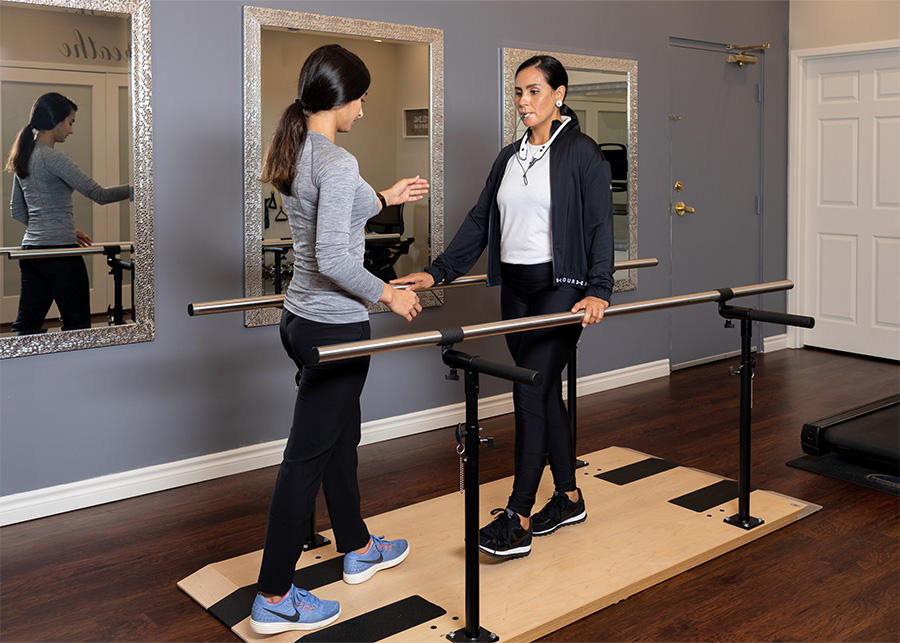Physical Therapy Rehabilitation
Scientific evidence points to the benefits of physical exercise for people with neuromuscular disorders with meaningful effects at a peripheral level (ie, osteoarticular/muscular and cardiovascular systems) and potential impact on brain activity modulation. Physical therapy exercise may trigger neurostimulation mechanisms that deliver signals to specific neurological sites in the body.
Neuromodulation and Neuroplasticity
Therapeutic neuromodulation is a process that leads to alteration of nerve activity to help modulate abnormal neural pathways’ behavior caused by the disease process and reestablishing neural balance.
Neuromodulation can promote changes in neural activity and/or induce mechanisms of neural network repair, called adaptive changes, that can compensate for the disrupted functional processes.
Upon sustained neuromodulation, the brain, through a process called neuroplasticity, may consolidate these adaptive changes and “learn” to employ the new compensatory mechanisms and pathways to improve or regain control of the impaired function.
MS Rehabilitation
Physical therapy (PT) is commonly used to treat gait deficits in patients with MS and it’s believed to promote neuromodulation.
Clinical trials have shown that short-term exercise intervention can improve cognition, mobility, and other symptoms of MS. Improvements in walking after physical therapy rehabilitation, mobility and muscle strength and, to a lesser extent, balance can be ameliorated with physical therapy.
However, scientific evidence is yet too scarce to support the role of neuromodulation and neuroplasticity in promoting a sustained, long-term therapeutic effect on gait, balance, or other MS symptoms with physical therapy alone.

REFERENCES:
Tavazzi E, Cazzoli M, Pirastru A, et al. Neuroplasticity and motor rehabilitation in multiple sclerosis: a systematic review on MRI markers of functional and structural changes. Front Neurosci. 2001;15:707675.
Stellmann JP, Maarouf A, Schulz KH, et al. Aerobic exercise induces functional and structural reorganization of CNS networks in multiple sclerosis: a randomized controlled trial. Front Hum Neurosci. 2020;14:255.
Saunders JC. The role of central nervous system plasticity in tinnitus. J Commun Disord. 2007;40(4):313–334.

